Solar Panels 101: What Homeowners Should Know
3 January 2025
If you’ve been thinking about installing solar panels on your home but feel unsure about where to start, you’re not alone. Solar energy is one of those topics that feels both fascinating and intimidating. Sure, the idea of powering your home with sunlight sounds fantastic, but at the same time, it’s easy to get overwhelmed by the technical jargon and costs.
So, in this article, I’m going to break it all down for you—no fluff, no overly complicated language, just the essentials. By the end, you’ll have a solid understanding of solar panels, how they work, the benefits, the potential drawbacks, and, most importantly, whether they’re right for your home.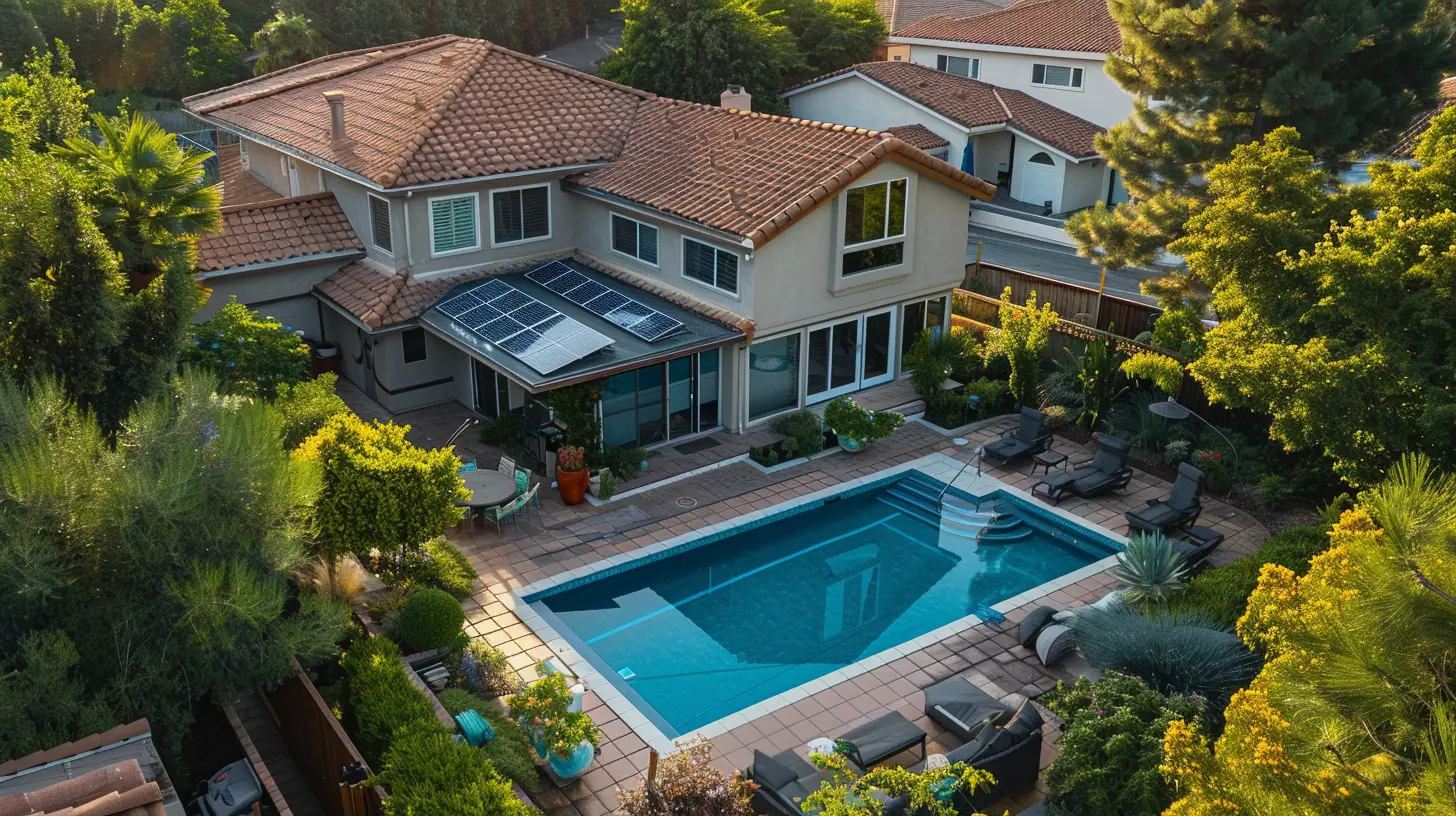
What Are Solar Panels, Anyway?
Let’s start with the basics. Solar panels, also known as photovoltaic (PV) panels, are devices designed to convert sunlight into electricity. They’re made up of a bunch of individual solar cells (usually silicon) that absorb sunlight and create an electric current.Think of solar panels as modern-day magic windows—they take something as simple and abundant as sunlight and turn it into power that can light up your home, run your fridge, and even charge your electric car. Pretty cool, huh?
How Do Solar Panels Work?
Okay, here’s where we get just a bit technical, but stick with me—it’s easier than it sounds.1. Absorption of Sunlight
When sunlight hits the solar panels, the solar cells absorb photons (light particles). This creates an electric field across the layers of silicon in the panels.
2. Conversion to Electricity
The electric field causes electrons to move, creating direct current (DC) electricity. This is where the magic happens—the sunlight is turned into usable energy!
3. Inverter Magic
Since most homes use alternating current (AC) electricity, an inverter swoops in to convert the DC electricity from the panels into AC electricity. Voila! Now your appliances can run on sunshine.
4. Power Distribution
The electricity flows into your home, where it powers your lights, gadgets, and appliances. Any excess energy can either be stored in a battery (if you have one) or sent back to the grid.
Didn’t I tell you it’s not rocket science? It’s science, sure—but it’s the kind you can actually wrap your head around.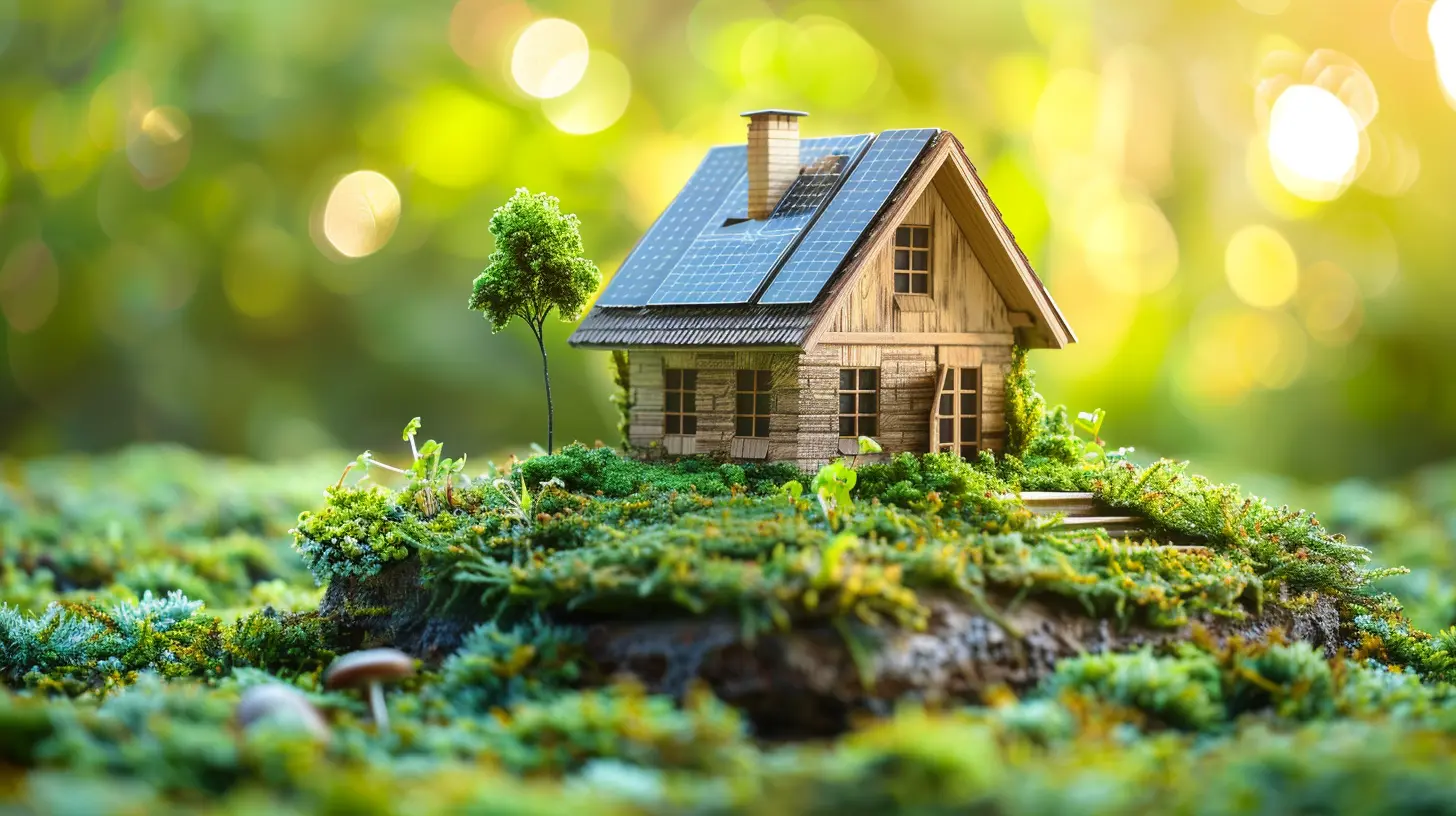
The Benefits of Solar Panels
So, why is everyone making such a fuss about going solar? Let’s talk about the perks.1. Lower Electricity Bills
Let’s not sugarcoat it—electricity isn’t cheap, and prices seem to rise every year. By installing solar panels, you can generate your own electricity and drastically reduce your monthly utility bills. In some cases, homeowners even eliminate their bills entirely. Think about what you could do with that extra cash each month—family vacation, anyone?2. Environmentally Friendly
If you’re looking to do your part for the planet, solar panels are a great way to reduce your carbon footprint. They produce clean, renewable energy rather than relying on fossil fuels. It’s like planting a mini forest on your roof!3. Increased Home Value
Let’s face it—homebuyers love energy-efficient features, and solar panels are a big one. Studies show that homes with solar panels tend to sell faster and at higher prices compared to those without. It’s a win-win.4. Energy Independence
Ever been hit with a blackout during a storm? Solar panels, especially when paired with a battery system, can keep the lights on when the grid lets you down. You’re essentially your own power company.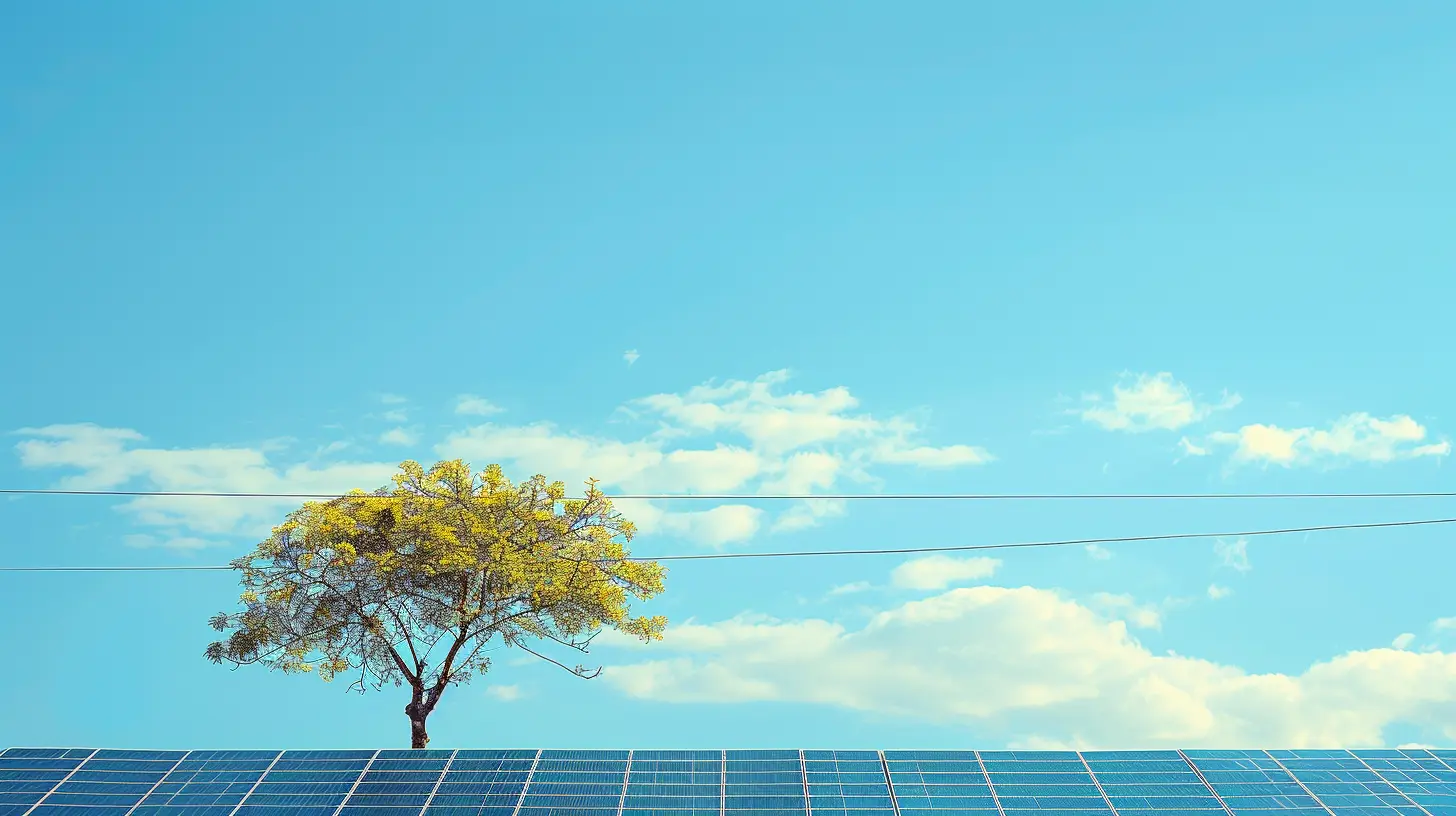
The Drawbacks (Yep, They Exist)
While solar panels have plenty of upsides, it’s only fair to talk about the not-so-glamorous aspects.1. Upfront Costs
There’s no getting around it—solar panels are a significant investment. The upfront costs for purchasing and installing a system can range from $10,000 to $30,000 depending on the size and setup. However, the long-term savings often outweigh this initial expense.2. Weather Dependency
Solar panels perform best under bright, sunny conditions, which means their efficiency can drop on cloudy days or during the winter. If you live in a region that’s often overcast, this might be something to consider.3. Not Suitable for Every Roof
Got an old or shady roof? Solar panels might not be the best fit. Panels work best on roofs with good sun exposure and enough structural integrity to handle their weight.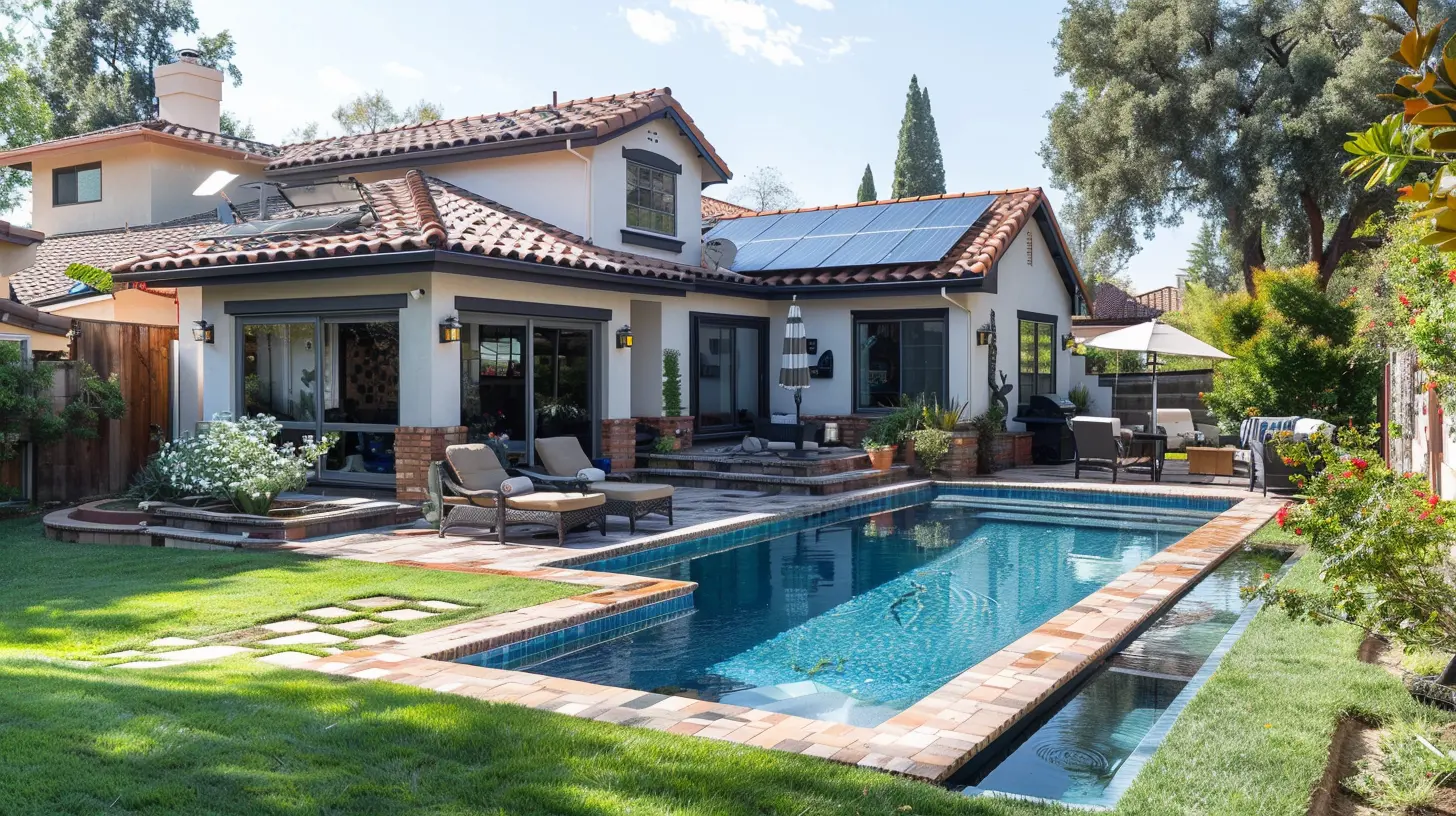
Are Solar Panels Worth It for You?
Now, let’s cut to the chase: Should you install solar panels on your home? The answer depends on a few factors.1. Location Matters
First and foremost, consider your geographic location. If you’re in a sunny state like California or Arizona, solar panels can be a no-brainer. But if you live in a rainier region, like the Pacific Northwest, you might need to crunch the numbers a bit more carefully.2. Electricity Rates
The higher your current electricity rates, the more you’ll save by going solar. If your local utility company charges through the roof (pun intended) for electricity, solar panels can offer substantial cost savings.3. Incentives and Rebates
Make sure to check for federal, state, and local incentives for solar installation. The U.S. federal tax credit lets you claim 30% of your solar system costs as a tax deduction, which can significantly reduce the upfront expense.4. Future Plans
Are you planning to stay in your home long-term? Solar panels typically pay for themselves in savings over 6–10 years. If you’re planning to move in a couple of years, you might not see the full financial benefits.The Solar Installation Process: What to Expect
If you’re ready to take the plunge, here’s a quick rundown of what the installation process looks like:1. Initial Consultation
You’ll start by chatting with a solar company. They’ll assess your roof, energy needs, and budget to design a custom system for your home. (Pro tip: Get multiple quotes.)2. Permits and Paperwork
Solar installation involves some red tape, but don’t sweat it—most companies handle permits and paperwork for you.3. Installation Day
Once everything’s approved, the installation itself typically takes 1–3 days. Before you know it, you’ll have shiny new panels on your roof.4. Inspection and Activation
After installation, your system will need to pass a final inspection before being connected to the grid. Then, your solar system gets turned on, and you’re officially a solar-powered homeowner.Frequently Asked Questions About Solar Panels
1. Do solar panels require maintenance?
Not really. They’re pretty low-maintenance. All you need to do is clean them once or twice a year to remove dirt or debris. If you’re not a fan of ladders, you can always hire someone to do it.2. What happens during a power outage?
Unless you have a battery storage system, your solar panels won’t work during a power outage. This is mainly for safety reasons—electricity can’t flow back into the grid while utility workers are fixing the issue.3. Can I add panels later?
Absolutely! Many homeowners start with a smaller system and add more panels over time as their energy needs change.Final Thoughts
At the end of the day, solar panels are an excellent way to save money, help the planet, and future-proof your home. While they’re not perfect, the benefits often far outweigh the drawbacks—especially if you live in a sunny area or plan to stay in your home for the long haul.Whether you’re motivated by lower electricity bills, a greener lifestyle, or just the thought of being less dependent on the grid, going solar can be a game-changer. So, what do you think? Is it time to let the sun power your home?
all images in this post were generated using AI tools
Category:
Sustainable HousingAuthor:

Travis Lozano
Discussion
rate this article
17 comments
Monica Fletcher
Investing in solar panels is not just eco-friendly; it's a smart financial move. Homeowners can significantly reduce energy costs and increase property value. Don’t overlook this opportunity—embrace renewable energy and enhance your home today!
April 2, 2025 at 3:38 AM

Travis Lozano
Thank you for your insights! Investing in solar panels indeed offers both environmental benefits and financial savings, making it a wise choice for homeowners.
Blake Powell
Ready to shine? Discover how solar panels can brighten your home and lighten your energy bills!
February 9, 2025 at 4:26 AM

Travis Lozano
Absolutely! Solar panels not only enhance your home’s energy efficiency but can also significantly reduce your utility bills. It's a smart investment for a sustainable future!
Zephyrian McTiernan
Great insights! Solar panels are a smart investment!
February 1, 2025 at 8:24 PM

Travis Lozano
Thank you! I'm glad you found the insights helpful. Solar panels can indeed be a wise choice for many homeowners!
Soliel Patel
This article succinctly outlines essential considerations for homeowners contemplating solar panel installation. It effectively addresses financial incentives, installation processes, and potential energy savings. Additionally, the emphasis on choosing reputable installers and understanding local regulations provides a comprehensive foundation for informed decision-making in the increasingly popular renewable energy landscape.
January 27, 2025 at 5:27 AM

Travis Lozano
Thank you for your feedback! I'm glad you found the article helpful and informative for homeowners considering solar panel installation.
Matilda Gray
Great insights! It's important for homeowners to feel empowered about sustainable energy choices.
January 21, 2025 at 5:35 AM

Travis Lozano
Thank you! Empowering homeowners is key to making informed sustainable energy choices.
Avianna Turner
Looking to shine a light on your energy bills? Solar panels are here to help! They not only soak up the sun’s rays but also keep your wallet from feeling solar-fied. Just remember, they’re not great for sunbathing, but they sure know how to generate those savings!
January 16, 2025 at 12:26 PM

Travis Lozano
Thanks for your insightful comment! Solar panels are indeed a smart investment for reducing energy costs while harnessing renewable energy.
Solara McGuffin
Embrace the solar revolution! Investing in solar panels is not just smart; it's essential for sustainable living, lowering bills, and increasing your home’s value.
January 13, 2025 at 1:04 PM

Travis Lozano
Thank you for your insight! Embracing solar panels indeed offers numerous benefits for homeowners, making it a smart choice for a sustainable future.
Luna Campbell
Great insights! Solar panels truly empower homeowners for a sustainable future.
January 8, 2025 at 4:49 AM

Travis Lozano
Thank you! I'm glad you found the insights valuable. Solar panels indeed offer a powerful way for homeowners to contribute to sustainability!
Ashira Clarke
Embrace the power of the sun! Investing in solar panels not only boosts your home’s value but also paves the way for sustainable living. Let’s harness renewable energy for a brighter future!
January 7, 2025 at 4:13 AM

Travis Lozano
Absolutely! Solar panels are a smart investment for both your home and the planet, promoting sustainability while enhancing property value. Let's embrace clean energy together!
Aelith Newman
Great article! Understanding solar panels is crucial for homeowners. Thanks for providing such valuable insights on this important topic!
January 6, 2025 at 7:51 PM

Travis Lozano
Thank you! I'm glad you found the article helpful. Solar energy is indeed vital for homeowners!
Owen Warren
Shine bright with solar delight!
January 6, 2025 at 12:46 PM

Travis Lozano
Thank you! Harnessing solar energy truly brings endless possibilities for homeowners. Shine on! ☀️
Xylo Lamb
Investing in solar panels is not just eco-friendly; it’s a smart financial decision. Homeowners can significantly reduce energy costs and increase property value. Go solar and embrace the future!
January 6, 2025 at 5:28 AM

Travis Lozano
Thank you for highlighting the financial and environmental benefits of solar panels! It's great to see more homeowners embracing renewable energy.
Drake King
Ah, yes! Because who doesn't want their roof to double as an expensive sunbathing spot for lazy solar panels? Genius!
January 5, 2025 at 2:02 PM

Travis Lozano
Thank you for your humorous take! Solar panels do provide practical benefits beyond aesthetics, but I appreciate the lighthearted perspective!
Melissa Hamilton
Great insights! I’m curious about the long-term savings with solar panels versus traditional energy sources. Do homeowners see a significant return on investment over time, or are there hidden costs we should be aware of? Looking forward to learning more!
January 5, 2025 at 5:43 AM

Travis Lozano
Thank you for your comment! Homeowners generally see significant long-term savings with solar panels compared to traditional energy sources, especially when considering tax incentives and lower utility bills. However, it's important to factor in maintenance costs and potential system upgrades. Researching local incentives can also help maximize ROI. Happy to share more insights!
Zephyrion McKittrick
This article offers a great starting point for homeowners considering solar panels! I’m curious about the long-term savings versus initial installation costs—how do those typically balance out? Also, what incentives are available to help offset the investment? Would love to learn more!
January 4, 2025 at 8:02 PM

Travis Lozano
Thank you for your comment! Typically, homeowners can see significant long-term savings on energy bills, often recouping installation costs in 5-10 years, depending on local utility rates and solar incentives. Numerous incentives, like federal tax credits and state rebates, can also help offset initial costs. I encourage you to explore specific programs in your area for the best options!
Zachary Velez
Great insights in this article! Embracing solar panels not only boosts your home's value and energy efficiency but also contributes to a sustainable future. Every small step towards renewable energy counts—let’s inspire our communities to make informed choices for a brighter tomorrow!
January 3, 2025 at 9:37 PM

Travis Lozano
Thank you for your thoughtful comment! I'm glad you found the article insightful. Every step toward renewable energy truly makes a difference!
Renee Becker
Great insights! Solar panels are a smart investment for homeowners!
January 3, 2025 at 12:38 PM

Travis Lozano
Thank you! I'm glad you found the insights helpful. Solar panels can indeed be a valuable investment for homeowners.
MORE POSTS
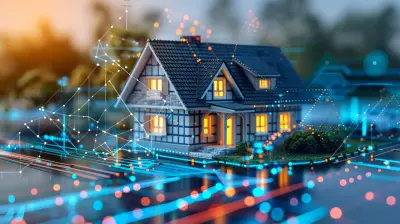
The Role of Data in Shaping Real Estate Marketing Strategies

The Importance of Smart Thermostats in Sustainable Homes

How to Spot Red Flags When Choosing a Real Estate Broker

How to Negotiate Rent Like a Pro
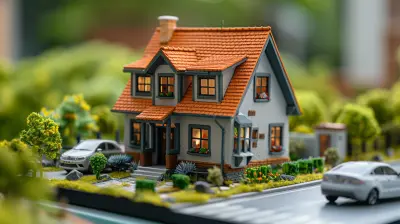
How to Rank Your Real Estate Website Using SEO

Managing Tenant Turnovers Smoothly and Efficiently

The Art of Flipping Properties: Achieving Fast ROI

Behind the Scenes: A Day in the Life of a Real Estate Broker
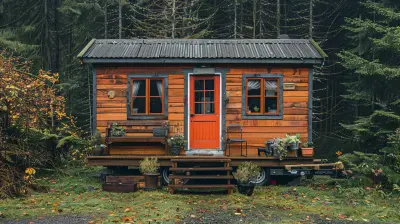
Tiny Homes and Sustainability: How Downsizing Helps the Planet

Why Waterfront Vacation Homes Are Always in Demand

Creating Transparent Lease Agreements in Property Management